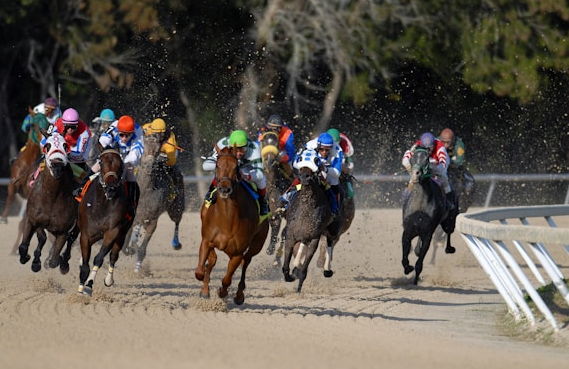 |
RacingBetter News |
| Wednesday 26th June 2024 | |
The King of Sports: Why Horse Racing Needs a Comprehensive Reform

Horse racing is one of the oldest sports today, spanning millennia, and it’s mainly remained unchained since classical antiquity: the horse that finishes first, overcoming conventional fences and hurdles, is the winner. Not all horses are built for speed in the same way that not all vehicles are designed to win Formula One races. Thoroughbreds are able to run rapidly over long distances, maintaining a pace of 40 miles per hour for over a mile, a never-before-seen combination of speed and stamina in the animal kingdom. Nowadays, horse racing attracts tens of thousands of people because it’s obviously exciting to watch. Not only are the races fast-paced, but also there’s the chance to place a bet (exacta, trifecta, pick 3, first 4, etc.).
For Years, Horse Racing Was Called the Sport of Kings, Though It’s More the King of Sports
St. Leger, the Oaks, and the Derby provide the narrative around which horse racing revolves year-round, much like the Grand Slams in tennis. Two Thousand Guineas and One Thousand Guineas were later added to these races. The Jockey Club was established at Newmarket in 1750 by a group of people with a passion for horse racing, who wrote their own rules, taking into consideration different kinds of contests involving horses of various ages. It owns 15 of the UK’s most prestigious racecourses, including Cheltenham, Aintree, and Epsom Downs. Since its founding years ago, the Jockey Club has been dedicated to improving the breeding and racing of Thoroughbreds, with a focus on the integrity, health, and safety of the breed and the sport.
For a very long time, horse racing was referred to as the sport of kings. Charles II, the father of the English turf, introduced the King’s Plate, one of the UK’s most prestigious sporting events; the horses raced were six years old and carried 168 pounds. Thoroughbred racing became wildly popular with British royalty and aristocrats, therefore earning the title “sport of kings.” Still, it more appropriately resembles the king of sports because, at its very core, it’s a simple sport that doesn’t require experience and doesn’t discriminate based on your background. Even you can start a career.
Equestrian Careers Are Suitable for Many People – It’s Unique, Challenging, And Satisfying on Many Levels
Horse racing captures the attention of people who love watching equestrian sports and those who dream of working with horses, yearning for liberation and independence. Examples of lucrative opportunities are racing event assistant, grounds person, jockey, veterinary officer, horse groom, and stud manager, to name a few. Horse racing rewards hard work, grit, and determination, putting forward a rewarding career that merges tradition, sports, and a love for horses. If you’d like to pursue a regulated profession, invest in your education, introduce yourself to others who also love horses to build a strong network, and explore entry-level positions that allow you to develop abilities to help maximise the potential of your personality.
Since there are many types of jobs in the horse racing industry, think carefully about what your skills are and what you might enjoy doing. Perhaps an office-based job is more your style. The equestrian sport is very dangerous for both the horse and the jockey, with risks like collisions, falls, and injury. Death can result from limb injuries and respiratory, digestive, and multiorgan system disorders. If you sustain a career-ending and life-altering injury, you can bring a personal injury claim in court, especially if it was caused by negligent riding, to protect your rights and overcome financial hardships. Online resources like https://www.how-to-sue.co.uk are comprehensive, authoritative, and, best of all, free.
The Horse Racing Industry Must Make Meaningful and Positive Changes
Regrettably, the show can’t go on, and someone must hit the pause button for the sake of the horses’ well-being and that of the industry. Racing has become more competitive, and horses, the stars of the spectacle, are under pressure to keep galloping at high speed; they’re whipped more in the final stages than horses further back in the field. Not only do they not get much-needed rest, but also the horses race year-round. According to the Jockey Club, a series of changes must be aggressively pursued in terms of how the industry is regulated, without which the future looks gloomy.
There’s no denying the fact that the horse racing industry has taken laudable measures to protect horses, such as better analysis of track surfaces, transparency in vet records to avoid improper drug use, and improved out-of-competition testing, but changes are slow, sporadically implemented, and often ineffective. If the industry genuinely wants to do something, the following changes should be implemented to make the racetracks safer for animals:
-
Postpone training until after a horse’s third birthday
-
Whipping for encouragement should be banned
-
Never count on dirt as the primary racing surface
-
Limit the number of races per season
Rules that aren’t in synchrony across the borders are confusing to fans and advocates alike and shatter confidence that the sport is clean and the game is fair.
Concluding Thoughts
Horse racing has a long-standing history and plays an important role in British culture and society, providing support for conservative attitudes and encouraging the consumption of the sporting experience, to say nothing of the enjoyment of betting. It’s so popular that only football overcomes it in terms of spectatorship. King James I took such an interest in horse racing that he was urged by parliament to refocus his attention on running the country. Animal rights organisations have long criticised the industry, highlighting that the benefits don’t outweigh the costs. While a broken leg is treatable for humans, it’s a death sentence for horses, even if veterinarians can repair and rehab many limb fractures.
Now more than ever, horse racing is under the microscope by media groups and the public, so the industry must demonstrate commitment and dedication to the health of its equine athletes, making safety and welfare an absolute priority. In spite of these dire developments, interest in horse racing continues to grow, and the money waged by bettors is at an all-time high.







